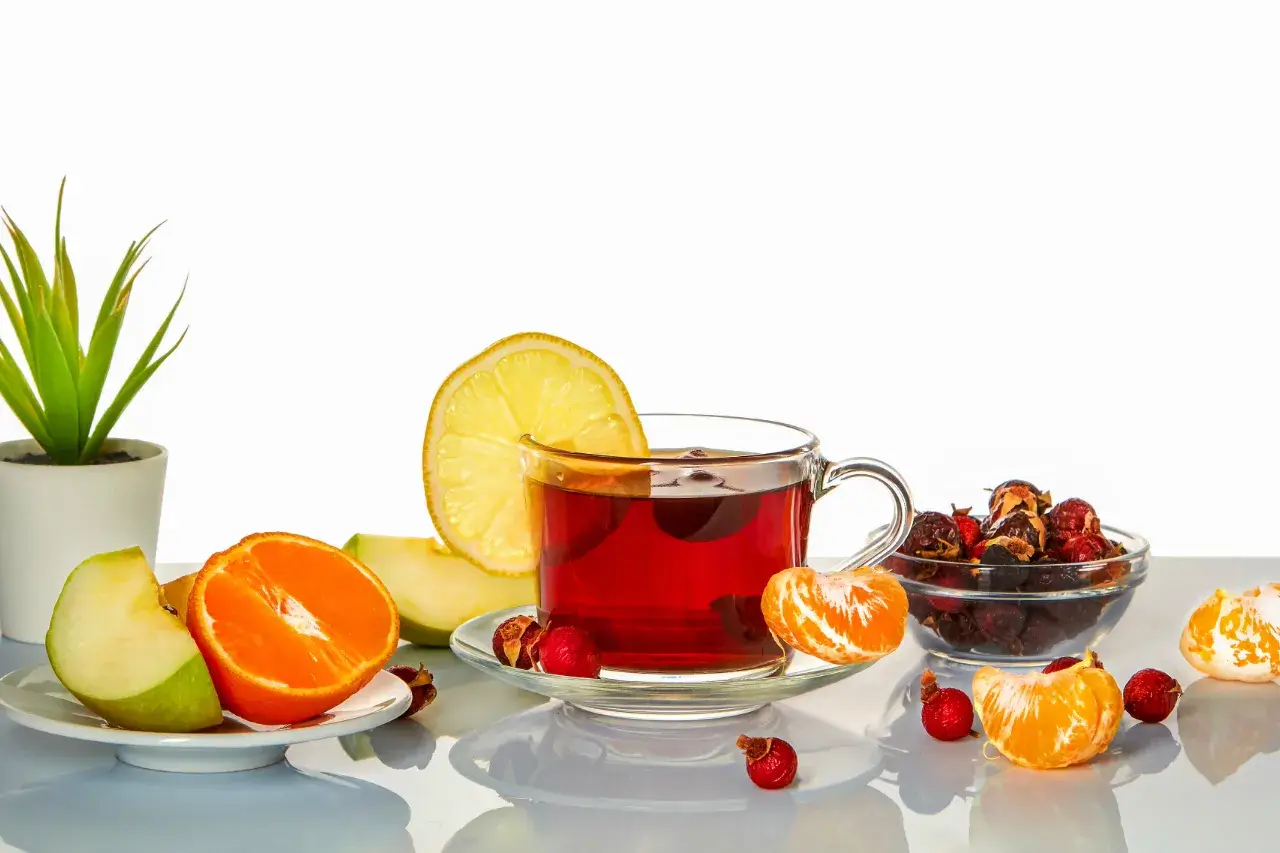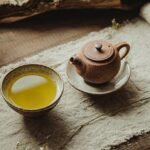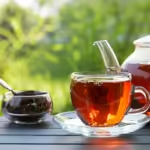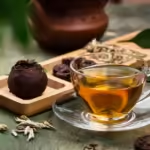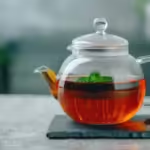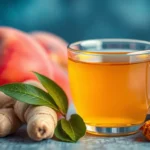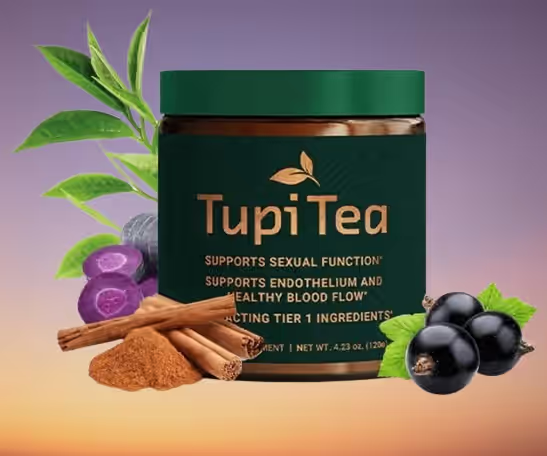Table of Contents
Rosehip hibiscus tea has been gaining popularity in recent years for its vibrant color, tart flavor, and remarkable health benefits. Combining the power of rosehip, the fruit of the rose plant, and hibiscus, a tropical flower, this herbal infusion is a nutritional powerhouse that has been used for centuries in traditional medicine. Whether you’re looking for a natural remedy to boost your immune system or searching for a caffeine-free beverage to enhance your daily wellness routine, rosehip hibiscus tea has something to offer.
In this article, we will explore seven amazing benefits of rosehip hibiscus tea, delve into the nutritional content of this super-drink, and suggest how to incorporate it into your daily diet.
What is Rosehip Hibiscus Tea?
Rosehip hibiscus tea is an herbal infusion made from the dried fruits of the rose plant, known as rosehips, and the dried petals of the hibiscus flower. Both ingredients are rich in antioxidants, vitamins, and minerals that contribute to overall health and well-being. The tea is naturally caffeine-free, making it a great option for people who want to reduce their caffeine intake without sacrificing taste or nutrition.
7 Benefits of Drinking Rosehip Hibiscus Tea
1. Rich in Antioxidants
Both rosehip and hibiscus are packed with antioxidants, which are compounds that help neutralize harmful free radicals in the body. Free radicals can cause cellular damage, leading to chronic diseases like heart disease and cancer. Rosehip hibiscus tea is particularly high in flavonoids, vitamin C, and polyphenols, all of which play a role in protecting the body from oxidative stress.
2. Boosts Immune System Health
Rosehip is an excellent source of vitamin C, one of the most important nutrients for a healthy immune system. Just one cup of rosehip hibiscus tea can provide a significant amount of your daily vitamin C requirement. Regular consumption of this tea can help your body fight off colds, flu, and other infections by strengthening the immune response.
3. Supports Heart Health
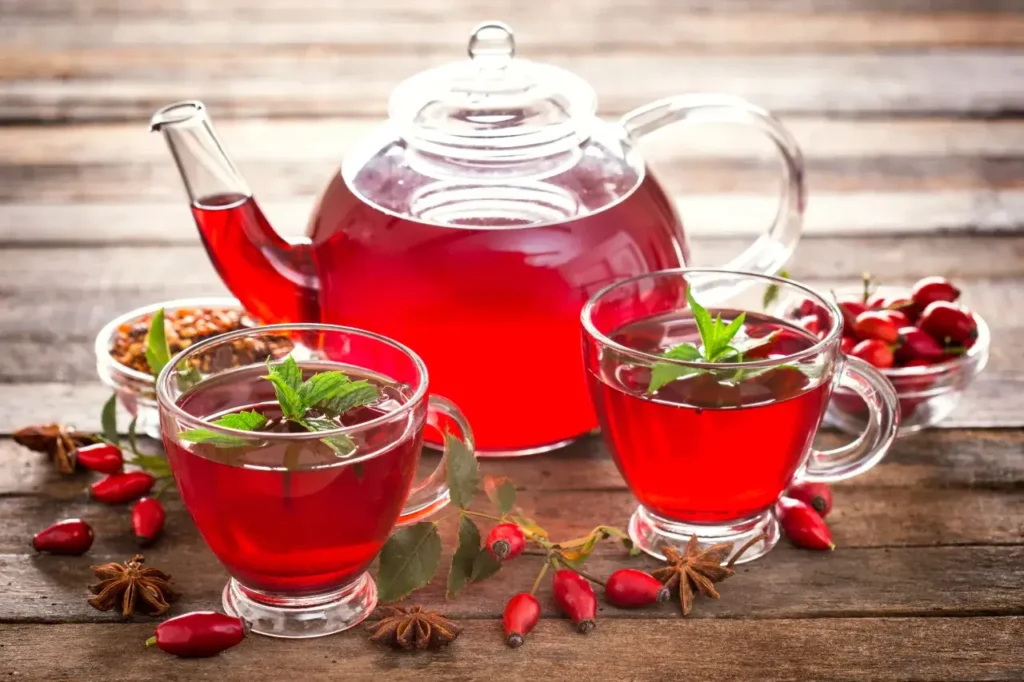
Research suggests that hibiscus tea may help lower blood pressure and reduce cholesterol levels, two major risk factors for heart disease. Hibiscus contains bioactive compounds that act as natural ACE inhibitors, which help relax blood vessels and improve circulation. When combined with the anti-inflammatory properties of rosehip, this tea becomes a potent natural remedy for promoting cardiovascular health.
4. Promotes Skin Health
Thanks to its high vitamin C content, rosehip hibiscus tea can improve skin health. Vitamin C is essential for the production of collagen, a protein that helps keep skin firm, smooth, and youthful. Regular consumption of this tea may help reduce the appearance of wrinkles, fine lines, and age spots. Additionally, the antioxidants in rosehip and hibiscus help to combat skin damage caused by UV rays and pollution.
5. Aids in Digestion
Rosehip hibiscus tea has been used traditionally to promote digestive health. The natural acids in hibiscus help stimulate the digestive system, promoting healthy bowel movements and reducing bloating. Rosehips contain natural pectin, a type of fiber that can help regulate digestion and prevent constipation.
6. Helps in Weight Management
If you’re looking to shed a few pounds, rosehip hibiscus tea may be a helpful addition to your diet. Hibiscus has been shown to reduce the absorption of fats and carbohydrates in the body, which may aid in weight loss. The tea is also low in calories, making it a great alternative to sugary beverages that can contribute to weight gain. Drinking rosehip hibiscus tea before meals may also help you feel fuller and prevent overeating.
7. Relieves Menstrual Pain
For women who suffer from menstrual cramps, rosehip hibiscus tea can offer some relief. Hibiscus is known for its antispasmodic properties, which help to relax the muscles of the uterus and reduce pain. Rosehips, with their anti-inflammatory effects, can also help alleviate discomfort and reduce bloating associated with menstruation.
How to Make Rosehip Hibiscus Tea at Home
Making rosehip hibiscus tea is simple and can be done with just a few ingredients. Here’s a basic recipe you can follow:
Ingredients:
- 1 tablespoon dried rosehips
- 1 tablespoon dried hibiscus petals
- 2 cups boiling water
- Honey or lemon (optional)

Instructions:
- Place the dried rosehips and hibiscus petals in a teapot or infuser.
- Pour boiling water over the herbs and let steep for 10-15 minutes.
- Strain the tea into a cup and add honey or lemon to taste if desired.
Enjoy your refreshing and health-boosting rosehip hibiscus tea any time of day!
Nutritional Profile of Rosehip Hibiscus Tea
Rosehip hibiscus tea is not only a delicious beverage but also a great source of essential nutrients. Here are some of the key vitamins and minerals found in this tea:
- Vitamin C: As mentioned earlier, rosehips are one of the richest plant sources of vitamin C. This powerful antioxidant helps support the immune system, promote healthy skin, and protect the body from harmful free radicals.
- Iron: Hibiscus contains a small amount of iron, which is important for the production of red blood cells and overall energy levels.
- Calcium: Both rosehip and hibiscus contain calcium, which is essential for bone health.
- Magnesium: Magnesium is a mineral that plays a role in over 300 biochemical reactions in the body, including muscle function, nerve transmission, and energy production.
Possible Side Effects and Precautions
While rosehip hibiscus tea is generally considered safe for most people, there are a few things to keep in mind:
- Allergic reactions: Some people may be allergic to rosehips or hibiscus. If you experience itching, swelling, or difficulty breathing after drinking the tea, discontinue use and consult a healthcare provider.
- Blood pressure: Hibiscus has been shown to lower blood pressure, which may be problematic for people already taking blood pressure medication. If you have low blood pressure or are on blood pressure-lowering medication, consult your doctor before adding hibiscus tea to your routine.
- Pregnancy and breastfeeding: There is limited research on the effects of hibiscus during pregnancy and breastfeeding. It’s best to consult your healthcare provider before consuming this tea if you are pregnant or nursing.
Conclusion
Rosehip hibiscus tea is a delicious and nutritious way to support your health. With its rich antioxidant content, immune-boosting properties, and ability to improve heart health, skin condition, and digestion, it’s no wonder that this herbal infusion has become a favorite among tea drinkers worldwide. Whether you’re looking to improve your wellness or simply enjoy a flavorful, caffeine-free beverage, rosehip hibiscus tea is a fantastic choice.
Incorporate a cup of rosehip hibiscus tea into your daily routine and start reaping its amazing benefits!
